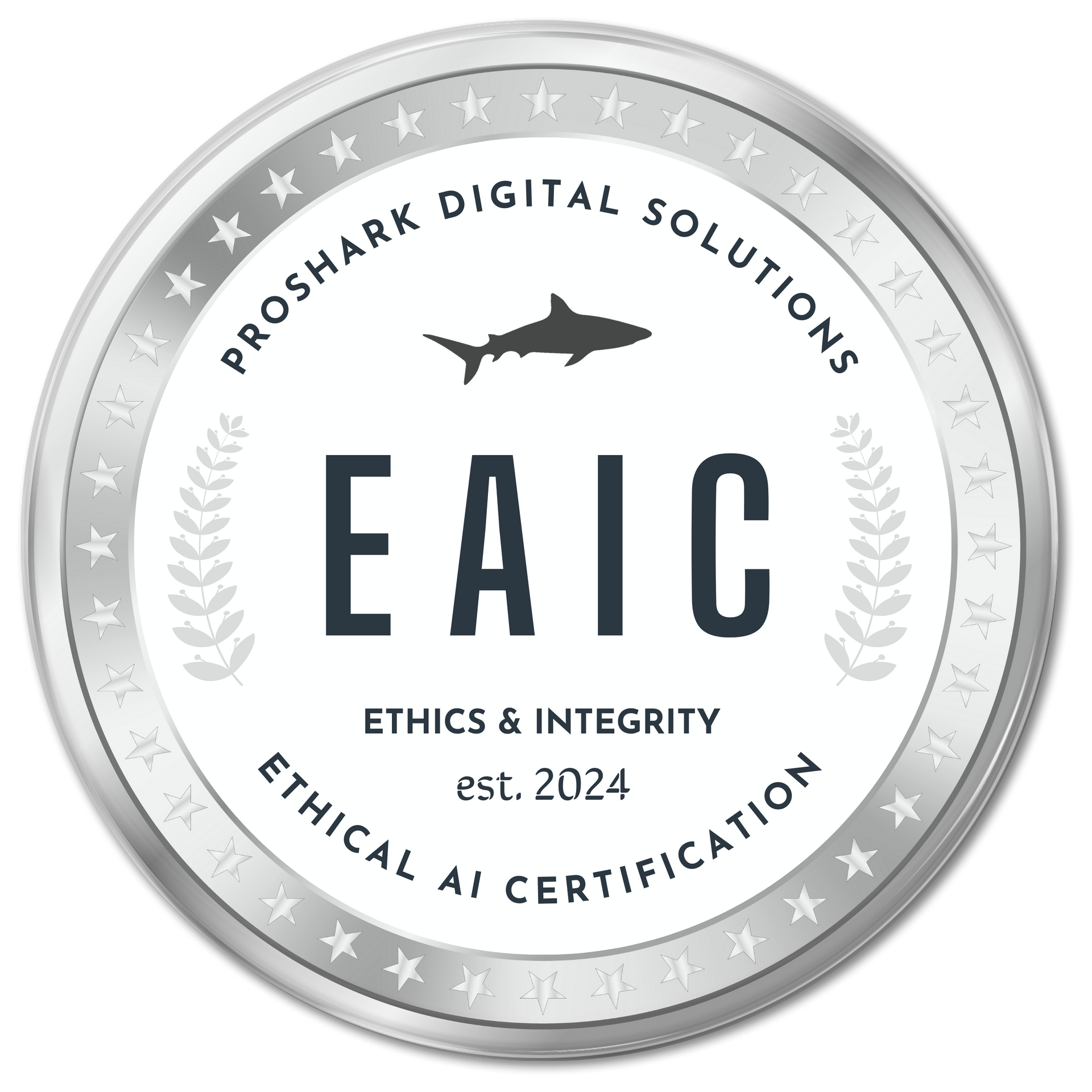In today's digital age, creating personalized experiences for customers can set a brand apart from the competition. By leveraging the power of digital marketing services, businesses can tailor their messages and interactions to meet the unique needs of each individual. This blog explores how digital marketing services can be used effectively to craft these personalized experiences.

Understanding the Importance of Personalization
Personalization is more than just addressing customers by their names. It's about offering tailored content, products, and services to each individual, making them feel valued and understood. As competitive landscapes grow fiercer, personalization becomes crucial for elevating customer loyalty and satisfaction. Seventy-nine percent of consumers are more inclined to engage with brands that promise personalized experiences. This customer-centric approach leads to enhanced engagement and a profound sense of brand loyalty. To truly understand its worth, one must look at statistics showing how such strategies can significantly boost company revenue by up to 15 percent. In essence, personalization is not just a buzzword but a transformative strategy for achieving sustained business growth.
In a world where digital interactions occur in milliseconds, customers expect brands to predict their needs. The art lies in the ability to harmonize technology and human touch, crafting experiences that resonate on a personal level. This approach not only increases conversions but also enhances brand reputation in the digital marketplace. As described in 10 examples of personalized digital experiences, personalization doesn't always have to be drastic. It might mean tailoring a website interface to suit user biographic data or adjusting email communications based on past interactions. This methodological shift enhances user experience, catering to unique preferences seamlessly.
As technology continues its rapid ascent, customers have begun to demand more than simple recognition from brands. They desire experiences that feel uniquely crafted and respect their individuality. Businesses leveraging digital marketing services witness heightened connectivity by adapting their strategies to meet evolving customer expectations. Moreover, studies reveal that nearly 66% of customers expect companies to understand their individual needs and preferences, fortifying the idea that personalized experiences are integral. The notion that one-size-fits-all is diminishing as personalized strategies provide rich, relevant, and contextual interactions.
The transition towards personalization is a testament to businesses adapting in a digital age where customer needs are central. By using customer-specific data and modern tools, brands can improve online marketing efficiency. This shift has benefits beyond profits—it enhances the very foundation of customer relations. It's no longer about selling products; it's about building lasting relationships that motivate advocacy. Indeed, personalization has become the heart of successful digital transformation.
Utilizing Data to Personalize Experiences
Data is the cornerstone of personalization. Through comprehensive data analysis, businesses can uncover deep insights about customer preferences and behavior patterns. This analytical understanding allows for the customization of marketing messages, ensuring they resonate with each target audience segment. As highlighted in 10 examples of personalized digital experiences, companies leveraging customer data effectively can dramatically enhance user experiences. For instance, by tracking a customer's search history within an online platform, businesses can suggest products they're likely to be interested in, raising conversion rates exponentially.
There's a delicate balance between personalization and privacy, one that smart data utilization can uphold. Providing a personalized experience isn't about inundating customers with information but about offering the right content at the right time. Harnessing customer data should be approached with care—ethical collection methods, transparent policies, and robust security measures are paramount. Remember, data-driven personalization strategies should revolve around enhancing user experience without imposing privacy risks.
With access to data streams from various touchpoints—websites, social media, emails—brands can refine their personalization strategies. This multichannel approach provides a holistic understanding of the customer journey, helping marketers design experiences that are tailored and immersive. By analyzing these interactions, marketers can not only personalize individual experiences but also predict future needs. Utilizing predictive analytics, companies can identify trends and anticipate customer demands, further bridging the gap between the business and its clientele.
The Role of AI and Automation in Customization
Artificial Intelligence (AI) and automation are the driving forces behind scalable personalization. These technologies simplify and accelerate complex processes, enabling marketers to deliver personalized experiences with precision and at scale. Through AI-driven algorithms, businesses can tailor recommendations and messages based on real-time data. With tools like chatbots, personalized customer service becomes possible 24/7, offering a seamless user experience without human intervention. As 10 examples of personalized digital experiences suggest, automation takes personalization to new heights, allowing businesses to individualize experiences effortlessly.
The beauty of AI lies in its ability to continuously learn and adapt. This adaptive intelligence permits businesses to refine personalization strategies continually, evolving alongside customer preferences. Chatbots, predictive analytics, and AI-driven content creation have revolutionized how personalized marketing is executed. Beyond increasing efficiency, these technologies empower businesses to offer customized experiences that genuinely resonate with users, fostering deeper connections and loyalty.
The integration of AI into digital marketing isn't about replacing the human touch; instead, it's about enhancing it. AI can parse through vast datasets with remarkable speed, providing valuable insights that help marketers fine-tune personalization strategies. The result is a more personalized customer journey, where individuals feel understood and valued. This synergy of human creativity and AI accuracy represents the future of personalized digital marketing, effortlessly combining efficiency with empathy.
Crafting a Personalized Customer Journey
Creating a personalized customer journey requires an understanding of individual touchpoints and how they interconnect. Every interaction a customer has with a brand contributes to their journey, and each touchpoint is an opportunity to deliver personalized content. For a seamless experience, it's crucial for businesses to map out this journey, identifying key moments where personalization can enhance engagement. Such an approach not only elevates immediate interaction quality but also builds a cohesive and memorable brand experience.
A well-structured customer journey addresses the dynamic and sometimes non-linear paths consumers take. By capturing these paths with analytics and feedback mechanisms, brands can identify which strategies and approaches best suit different customer segments. Leveraging this data, marketers are enabled to create experience-rich interactions that boost customer satisfaction and foster long-lasting relationships. Emphasizing personalized touchpoints further solidifies a brand's place in the consumer’s life, cementing trust and credibility over time.
Examples of Successful Personalization in Digital Marketing
Examining real-world cases of successful personalization strategies illustrates its power. One notable example includes how companies tweak their website interface based on user behavior. As explored in 10 examples of personalized digital experiences, leveraging data to alter site layout in real-time can substantially increase engagement and conversions. This proactive adaptation indicates to customers that brands are attentive to their needs, leading to enriched user experiences.
Email marketing remains a powerful personalized marketing tool. Its impact has been significantly amplified by incorporating personalized subject lines and content tailored to recipient preferences. This personalized approach not only captures attention but also drives up email marketing effectiveness. By using personalization, businesses can increase open rates and conversions, making emails not just a communication tool, but an integral part of the customer-centric marketing strategy.
Retailers like Amazon have perfected the art of recommendation engines. By utilizing previous purchase data, browsing history, and customer reviews, they can offer product recommendations that are often spot-on. This predictive capability showcases the potential of advanced data analytics in personalizing shopping experiences, increasing both customer satisfaction and sales. When done correctly, these strategies significantly enhance brand loyalty.
Embrace Personalization for Business Success
Personalizing your digital marketing efforts is no longer just an option; it's a necessity. By taking advantage of advanced technologies and creative strategies, businesses can build meaningful connections and enhance customer satisfaction. Embracing personalization not only differentiates a brand but also drives growth and fosters loyalty in today's competitive market.



All rights reserved © 2004-2024 Proshark • Privacy Policy • Messaging Policy • Terms of Service • Advertising TOU




